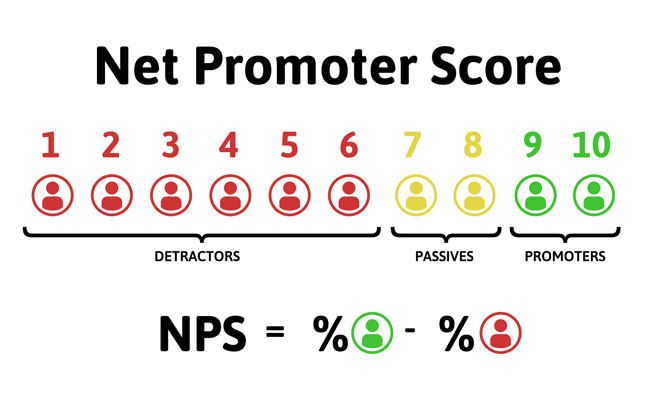
PHOTO: GOOD_STOCK/ISTOCK / GETTY IMAGES PLUS/GETTY IMAGES
Editor’s Note: This is the second part in a four-part series, where Dennis is sharing what his company benchmarks to ensure it’s on the path to growth. Part I appeared in our April issue.
To kick off this series, we discussed the importance of measuring route completion. But another critical measurement for pest management firms is benchmarking your gains and losses of services. You need to know how many customers you gained every month, and how many you lost.
Let’s say that last month, you had 785 customers; this month, you have 815. You’re happy you gained 30 customers. But dig a little deeper, and you may realize you actually gained 45 and lost 15.
We all have cancellations. People move; they try someone else; they fire us; they even pass away. Because of this, if you are not actively trying to add customers every day, your business will begin to erode.
HAPPY CUSTOMERS RAISE THE NPS
The Net Promoter Score (NPS) measures how likely your customers are to recommend you to others:
- Ask your customer, “On a scale of 1 to 10, with 10 being the highest, how likely are you to recommend us to your friends, colleagues and relatives?” Take down the information in a spreadsheet.
- Ask just one follow-up question: “Is there any reason you gave us that score?” Record that information in a spreadsheet, too.
Your NPS is the percentage of respondents giving you a 9 or a 10 — these are your Promoters — minus the percentage that give you a 6 or below, which are your Detractors. Anyone giving you a 7 or an 8 is a Passive, and won’t affect the equation.
When your NPS is 70 or more, your customers are helping you grow your business by looking for opportunities to recommend you. If your NPS is under 70, your customers are not happy and are not only going to not recommend you, they usually are actively looking for another option than your company.
Consider, too, that while it’s nice to provide service for people on a one-time basis, the real magic in our industry is that we have a repetitive business model.
For the past nine years, I’ve been in an owner’s group with people from many other industries. Trust me, our repetitive business model is the envy of those who don’t have it. For example, internet technology companies are mostly reliant on project and contract work. At the end of the contract, they have to find a new client to replace the work they just completed.
HAPPY CUSTOMERS RAISE THE LOB
But in addition to your number of repetitive customers, you need to measure “lines of business,” or LOB. Do you only offer general pest control? What about rodents? Termites? Mosquitoes? Bed bugs? How about other service lines, like lawn fertilization?
I remember vividly the day I was sitting at a table with about 30 pest management professionals at an event. At one end of the long table was me, and at the other end was my brother Bobby. At that time, he had been aggressively entering new lines of service — lawn fertilization, mowing, irrigation, and top dressing. He also was entering mechanical, electrical and plumbing (MEP), as well as power washing, tree trimming, and other services.
I, on the other hand, was a fan of keeping it simple: pests (all types) and lawn fertilization.
Someone jokingly asked Bobby when he was going to get into house cleaning, and he sincerely replied that it was a great idea. I immediately said, “Do you guys remember when all we did was kill bugs? Man, I loved those days!”
But later, I learned the truth. While Bobby’s business was about four times the size of mine at that point, his customer base was only about 30 percent more than mine. His revenue came from having customers use him for an average of four services, or 4.00 LOB.
My current LOB is 1.86, a figure that is as important as any other number in my business. The more of your services that customers use, the less likely they are to cancel you. If you provide more services than any of your competitors, where else can they go to replace you? If they love doing business with you, and you make a mistake that upsets them, they will be more likely to forgive mistakes if you do more for them.
JENKINS, who rotates this column with his brothers Bobby and Raleigh, is president of ABC Home & Commercial Services, Dallas, Texas. He can be reached at djenkins@abcpest.com.
Leave A Comment